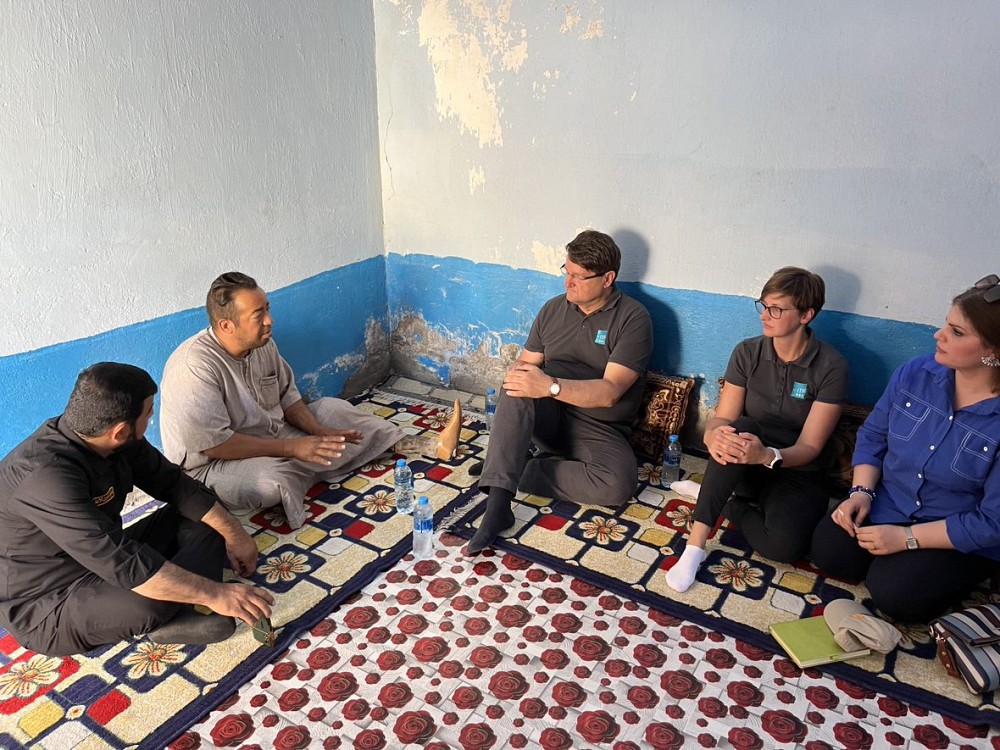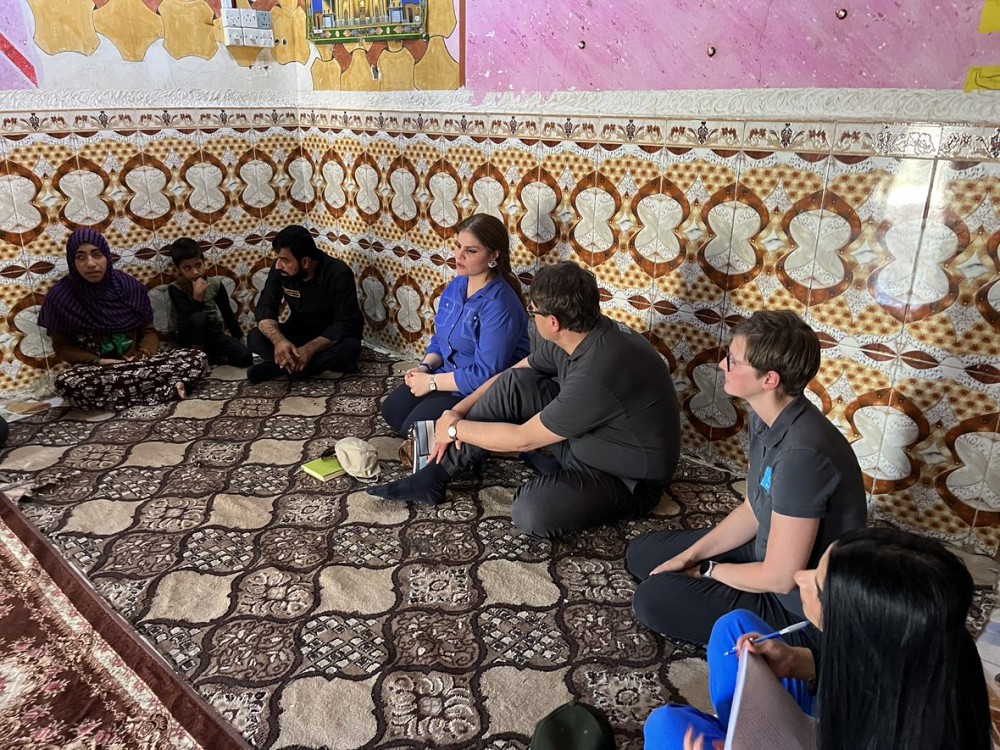Landmine and ERW Contamination Crisis in Iraq
Iraq faces a significant and ongoing challenge as it deals with landmines, explosive remnants of war (ERW), and cluster munitions left over from past conflicts. These dangerous remnants continue to endanger lives and hinder the country's recovery. The problem is particularly severe in Basra province, located in southern Iraq, where an astonishing 1.2 billion square meters of land are contaminated. This contamination poses a serious threat to the safety and well-being of local citizens, making the land unusable for farming, building, and other important activities. The constant risk of accidental explosions adds to the danger, causing injuries and deaths. Additionally, it severely limits access to resources and essential services, which slows down progress in the affected areas.

In the village of Al Bitran, located in the Jurf al-Milh region to the east of Basra city, the devastating impact of landmines and unexploded ordnance is tragically evident. The village's name, which translates to "The Village of Amputees," reflects the harsh reality that its residents have suffered the loss of limbs due to remnants from past conflicts. Their stories highlight the profound consequences of contamination on their lives and emphasize the urgent need for assistance and support.
During the visit, the ITF team personally witnessed the dire consequences faced by the residents of Al Bitran. They met a man who lost his leg while collecting scrap metal to make a living. In another heartbreaking account, a family cutting grass for sale in a field near their house experienced an explosion that claimed the life of the mother, injured the son's upper body with shrapnel, and caused the daughter to lose sight in both eyes. These stories serve as poignant reminders of the immense risks faced by the community on a daily basis.


Furthermore, ITF held significant meetings with key stakeholders in Iraq. They convened with Dr. Sabah Hasan Al-Husseini, the Director General of Iraqi Directorate for Mine Action (DMA), in Baghdad, discussing ITF's work in the country, the implementation of the Memorandum of Understanding between DMA and ITF, and explored ways to strengthen future collaboration. In Basra, they met with Mr. Nibras Fakhir Al-Timimy, the Director of Regional Mine Action Center (RMAC)-South, addressing the extensive contamination in the region, its economic and social significance, and the critical need to clear contaminated areas of mines, ERW, and cluster munitions.


The team also visited a technical survey task site in Shatt Al-Arab, witnessing the heroic work of Danish Refugee Council's female demining team. They observed the team operating in hazardous areas near villages, where recent mine accidents have resulted in the loss of lives or limbs. These experiences further underscored the urgent need for demining efforts and highlighted the importance of their work.
The collective experiences and encounters during the visit underscore the urgent imperative for collaboration, international support, and steadfast efforts in tackling the contamination crisis and forging a safer and more prosperous future for the people of Iraq. We extend our heartfelt gratitude to the DMA for their gracious invitation and invaluable assistance in organizing and facilitating this enlightening visit.
